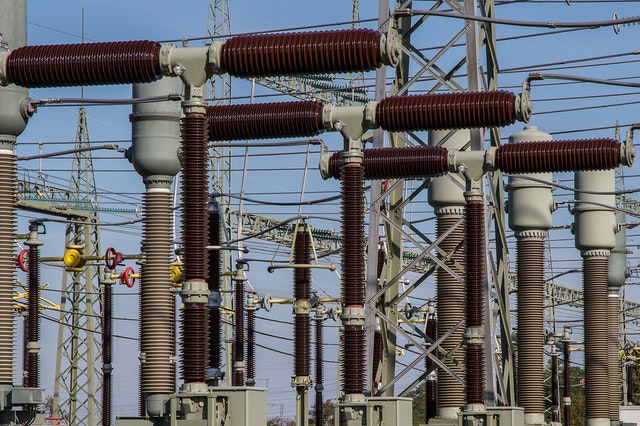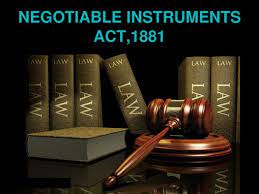Electricity (Amendment) Bill, 2020 – Key Takeaways and Analysis of the Draft Bill
Electricity can transform people’s lives, not just economically but also socially, therefore, legislative governance in this sector is indispensable. In India, electricity related matters are governed through a single codified law which is Electricity Act, 2003. The jurisdictive object of the Act aims for a unified and uniform law to take care of the current needs of the power sector in the area of Generation, Transmission, Trading and Distribution of electricity. The Act, although a comprehensive legislation in itself, has been amended at different periods of time. The first Amendment was in the year 2003 and the second was in 2007. A Bill was also tabled in the year 2014.
The 2014 Bill was introduced in Lok Sabha by the then Minister of State (I/c) for Power, Coal and New & Renewable Energy Shri. Piyush Goyal. Major Amendments in the power sector were sought for to usher reforms and to promote competition, efficiency in operations and to bring improvement in quality and supply of electricity, thus ensuring maximum benefits to the consumer. The Bill was referred to the Parliamentary standing committee on Energy for its review. The report came out in September 2015 and further the revised Bill as per the recommendations of the committee was circulated in 2018 but it did not see the light of the day.
Now Government of India, Ministry of Power proposing certain amendments to the Electricity Act has circulated the Draft Electricity Amendment Bill, 2020 along with Statement of Reasons and invited public comments, on this behalf.
MAJOR AMENDMENTS
The recent Amendment Bill has been introduced in light of a few critical issues which have weakened the commercial and investment prospects in the electricity sector and requires to be addressed immediately so as to ensure sustainable growth of the country viz-a-viz rapid growth in the electricity sector. This draft contains a plethora of Amendments ranging from structural to functional changes.
PROPOSAL TO ESTABLISH THE ELECTRICITY CONTRACT ENFORCEMENT AUTHORITY
Currently, as we see, the authorities that deal with the matter related to Electricity do not enjoy the jurisdiction over the matters pertaining to enforcement of contract. Even after having many provisions dealing with sale and purchase agreements in the act, there is no specific provision that deals with enforcement of such agreements. The existing bodies like Central or State Electricity Regulatory Commission (CERC/SERC), Appellate Tribunal For Electricity (APTEL) only enjoy jurisdiction on matters related to determination of tariffs, licensing, metering and other related matters.
This new quasi-judicial authority shall be the sole adjudicating authority which will have the exclusive and original jurisdiction in regard to matters dealing with specific performance of contracts excluding the regulation or determination of tariff rates. The orders passed by this authority shall be executable as a decree of Civil Court. The appeal to the order of Electricity Contract Enforcement Authority (ECEA) shall lie to the Appellate tribunal of Electricity (APTEL). It is understood that an authority like ECEA is formed so that the non-performance of contracts does not lead to uncertainty which in turn upsets investment decisions and ease of doing business in this sector.
NATIONAL RENEWABLE ENERGY POLICY
Under this draft Bill, emphasis has been on the advancement and promotion of Renewable Energy. Earlier not much attention was given in using renewable sources of energy but through this Amendment Bill, considerable attention is drawn on using this source of energy.
The Bill proposes that the Central Government in consultation with the State Governments shall prepare a policy for the promotion of generation of electricity from renewable sources of energy. Further, the Bill advises that a minimum percentage should be prescribed for the purchase of electricity produced from renewable sources as well as hydro power sources.
FACILITATION OF CROSS BORDER TRADE OF ELECTRICITY
The draft Bill has not missed the appropriate focus on international trading of electricity. It has delegated the Central Government to prescribe rules and issue guidelines for allowing and facilitating cross-border trade of electricity. It has further added a provision that the Central Government can mandate the Central Commission to make regulations in the above matter.
It can be apprehended that the trade shall include sale as well as purchase of electricity through cross-border. The focus on this point is in light of introducing a less restrictive framework for cross border trading of electricity.
DISTRIBUTION SUB-LICENSE AND FRANCHISE
The draft Bill has ensured to reflect the current sentiments of the market to facilitate greater private participation in the distribution sector of the electricity. Already the bill is in line to lure private entities in this sector, an easy and accessible framework is expressed in the bill to welcome private parties in this field.
It can be seen through the provisions where the Distribution licensee can recognize and authorize a person as distribution sub-licensee to distribute the electricity on its behalf in a particular area. It states that no separate license is required for the sub-licensee or franchisee from the state commission. For a sub-license, only prior permission from the state commission is required and for the franchise, it is sufficient to merely inform the commission about the same. However, the DISCOM will remain the licensee and will ultimately be responsible for ensuring the quality of the distribution of electricity in its area of supply.
APPLICABILITY OF THE ELECTRICITY ACT, 2003 ON ENTIRE TERRITORY OF INDIA
The draft Bill has proposed that the Act shall be made applicable on Jammu and Kashmir as well. As for now, the Act exempts its operation on Jammu and Kashmir but if the Amendment is brought into force, a unified codification of electricity law can be seen in the entire territory of India bringing consistency.
HIGHER PENALTIES FOR STRICTER COMPLIANCE
The draft Bill has taken into consideration the need for stricter compliance of the provisions inscribed under the Electricity Act as well as the orders of the commission. In that sense, the Bill has inserted the provision of increasing penalties under Section 142 and Section 146 of the Electricity Act. Section 142 deals with the punishment for non-compliance of directions issued by the appropriate commission while Section 146 takes the note of punishment for non-compliance of orders or directions given under this Act.
PAYMENT SECURITY MECHANISM
At present in the Electricity Act, there is no mechanism to keep an eye on payment security and because of such unavailability of the system; a large pool of unpaid dues has been formed. Such lack of a robust system to enforce compliance with payment security mechanisms has been a major pain point for the power industry.
Through this Amendment Bill, a system of check and balances can be created stating that “no electricity shall be scheduled or dispatched under such contract unless adequate security of payment as agreed upon by the parties to the contract, has been provided”. This provision shall act in the favour of load dispatch centres who undertake the responsibility of dispatching electricity and which are currently scheduling electricity without any payment security. This will allow them to mandate adequate security of payment before scheduling dispatch of electricity in order to protect the sanctity of contracts.
CRITICS OF THE AMENDMENT BILL
This draft Amendment Bill seeks to unveil the anticipated move of Government to encourage higher participation of private players in this sector. Certainly, this can be a game-changer move to revive and flourish the electricity sector in our country which is currently facing difficulties due to huge losses piling up every year because of Transmission and Distribution difficulties including electricity pilferage.
However, some of the Amendments under this draft Bill are being criticized for diluting the powers of State through usurpation of centralizing the powers. Electricity as a subject is found under the List III (Concurrent) of the Constitution, the Central and the state Government both are its equal stakeholders under the realm of federalism that India preaches.
As the public comments have been sought, All India Power Engineers’ Federation (AIPEF) V K Gupta commented on the Bill asserting that, “The setting up of ECEA would dilute the power of the state and central regulatory commissions to settle matters related to PPAs (power purchase agreements) between discoms and gencos.” Further, the Telangana Government has decided to oppose the proposed electricity Bill as they feel that such Amendments will curtail the power of the State Government and will further create problems, especially payment of subsidies which the state Government is offering to various categories of consumers.
The critics are of the opinion that whatever is left under the purview of the State Governments in this Act, it would be taken away through this Amendment. The act has also been criticized for jurisdictional issues between CERC and ECEA as proper bifurcation of functions is not spelt clearly.
Although, if the proposed Amendments are seen in the larger interest, they are progressive, transformative, and formulated with the objective to remove the regulatory impediments in the functioning of the Act. However, like other countries, India is currently battling against the global pandemic and is going through a time of economic crisis and thus, the ideology of privatising the sector is maliciously represented at present even if it is undesired.
The timing of introducing the draft Bill is stressing the consumers as they are not able to give their valuable feedback because of the continuous distress that Covid-19 is causing.
Nonetheless, a thoughtful series of recommendations can mark this Amendment Bill as one of the biggest policy shifts in the Electricity sector.









 He holds a Bachelor’s and Master’s Degree in Corporate Secretaryship and a Degree in Law. He is a Fellow member of the Institute of Company Secretaries of India and an Associate Member of the Corporate Governance Institute, UK and Ireland. He has also completed a program from ISB on ‘Value Creation through Mergers and Acquisitions.
He holds a Bachelor’s and Master’s Degree in Corporate Secretaryship and a Degree in Law. He is a Fellow member of the Institute of Company Secretaries of India and an Associate Member of the Corporate Governance Institute, UK and Ireland. He has also completed a program from ISB on ‘Value Creation through Mergers and Acquisitions. Mr P Muthusamy is an Indian Revenue Service (IRS) officer with an outstanding career of 30+ years of experience and expertise in all niche areas of Indirect Taxes covering a wide spectrum including GST, Customs, GATT Valuation, Central Excise and Foreign Trade.
Mr P Muthusamy is an Indian Revenue Service (IRS) officer with an outstanding career of 30+ years of experience and expertise in all niche areas of Indirect Taxes covering a wide spectrum including GST, Customs, GATT Valuation, Central Excise and Foreign Trade. During his judicial role, he heard and decided a large number of cases, including some of the most sensitive, complicated, and high-stake matters on insolvency and bankruptcy, including many cases on resolution plans, shareholder disputes and Schemes of Amalgamation, De-mergers, restructuring etc.,
During his judicial role, he heard and decided a large number of cases, including some of the most sensitive, complicated, and high-stake matters on insolvency and bankruptcy, including many cases on resolution plans, shareholder disputes and Schemes of Amalgamation, De-mergers, restructuring etc., Ms. Sarah Abraham has been enrolled with the Bar Council of Tamil Nadu since 1998. Her areas of practice include Shareholder Disputes, Corporate Compliances, Mergers and Acquisitions, Private Equity/ Venture Capital Agreements and allied disputes, Information Technology Contracts, Intellectual Property, General Commercial Agreements, Litigation, Arbitration and Mediation.
Ms. Sarah Abraham has been enrolled with the Bar Council of Tamil Nadu since 1998. Her areas of practice include Shareholder Disputes, Corporate Compliances, Mergers and Acquisitions, Private Equity/ Venture Capital Agreements and allied disputes, Information Technology Contracts, Intellectual Property, General Commercial Agreements, Litigation, Arbitration and Mediation. A K Mylsamy is the Founder, Managing Partner and the anchor of the firm. He holds a Degree in law and a Degree in Literature. He is enrolled with the Bar Council of Tamil Nadu.
A K Mylsamy is the Founder, Managing Partner and the anchor of the firm. He holds a Degree in law and a Degree in Literature. He is enrolled with the Bar Council of Tamil Nadu. M Subathra holds a Degree in law and a Master’s Degree in International Business Law from the University of Manchester, United Kingdom. She is enrolled with the Bar Council of Tamil Nadu.
M Subathra holds a Degree in law and a Master’s Degree in International Business Law from the University of Manchester, United Kingdom. She is enrolled with the Bar Council of Tamil Nadu. Mr. K Rajendran is a former Indian Revenue Service (IRS) officer with a distinguished service of 35 years in the Indirect Taxation Department with rich experience and expertise in the fields of Customs, Central Excise, Service Tax and GST. He possesses Master’s Degree in English literature. Prior to joining the Department, he served for the All India Radio, Coimbatore for a period of about 4 years.
Mr. K Rajendran is a former Indian Revenue Service (IRS) officer with a distinguished service of 35 years in the Indirect Taxation Department with rich experience and expertise in the fields of Customs, Central Excise, Service Tax and GST. He possesses Master’s Degree in English literature. Prior to joining the Department, he served for the All India Radio, Coimbatore for a period of about 4 years. An MBA from the Indian Institute of Management, Calcutta, and an M.Sc. in Tourism Management from the Scottish Hotel School, UK, Ashok Anantram was one fo the earliest IIM graduates to enter the Indian hospitality industry. He joined India Tourism Development Corporation (ITDC) in 1970 and after a brief stint proceeded to the UK on a scholarship. On his return to India, he joined ITC Hotels Limited in 1975. Over the 30 years in this Organisation, he held senior leadership positions in Sales & Marketing and was its Vice President – Sales & Marketing. He was closely involved in decision making at the corporate level and saw the chain grow from a single hotel in 1975 to a very large multi-brand professional hospitality group.
An MBA from the Indian Institute of Management, Calcutta, and an M.Sc. in Tourism Management from the Scottish Hotel School, UK, Ashok Anantram was one fo the earliest IIM graduates to enter the Indian hospitality industry. He joined India Tourism Development Corporation (ITDC) in 1970 and after a brief stint proceeded to the UK on a scholarship. On his return to India, he joined ITC Hotels Limited in 1975. Over the 30 years in this Organisation, he held senior leadership positions in Sales & Marketing and was its Vice President – Sales & Marketing. He was closely involved in decision making at the corporate level and saw the chain grow from a single hotel in 1975 to a very large multi-brand professional hospitality group. Mani holds a Bachelor Degree in Science and P.G. Diploma in Journalism and Public Relations. He has a rich and varied experience of over 4 decades in Banking, Finance, Hospitality and freelance Journalism. He began his career with Andhra Bank and had the benefit of several training programs in Banking.
Mani holds a Bachelor Degree in Science and P.G. Diploma in Journalism and Public Relations. He has a rich and varied experience of over 4 decades in Banking, Finance, Hospitality and freelance Journalism. He began his career with Andhra Bank and had the benefit of several training programs in Banking. Mr. Kailash Chandra Kala joined the Department of Revenue, Ministry of Finance as ‘Customs Appraiser’ at Mumbai in the year 1993.
Mr. Kailash Chandra Kala joined the Department of Revenue, Ministry of Finance as ‘Customs Appraiser’ at Mumbai in the year 1993.
 S Ramanujam, is a Chartered Accountant with over 40 years of experience and specialization in areas of Corporate Tax, Mergers or Demergers, Restructuring and Acquisitions. He worked as the Executive Vice-President, Group Taxation of the UB Group, Bangalore.
S Ramanujam, is a Chartered Accountant with over 40 years of experience and specialization in areas of Corporate Tax, Mergers or Demergers, Restructuring and Acquisitions. He worked as the Executive Vice-President, Group Taxation of the UB Group, Bangalore. K K Balu holds a degree in B.A and B.L and is a Corporate Lawyer having over 50 years of Legal, Teaching and Judicial experience.
K K Balu holds a degree in B.A and B.L and is a Corporate Lawyer having over 50 years of Legal, Teaching and Judicial experience. Justice M. Jaichandren hails from an illustrious family of lawyers, academics and politicians. Justice Jaichandren majored in criminology and then qualified as a lawyer by securing a gold medal. He successfully practiced in the Madras High Court and appeared in several civil, criminal, consumer, labour, administrative and debt recovery tribunals. He held office as an Advocate for the Government (Writs Side) in Chennai and was on the panel of several government organizations as senior counsel. His true passion lay in practicing Constitutional laws with focus on writs in the Madras High Court. He was appointed Judge, High Court of Madras in December 2005 and retired in February 2017.
Justice M. Jaichandren hails from an illustrious family of lawyers, academics and politicians. Justice Jaichandren majored in criminology and then qualified as a lawyer by securing a gold medal. He successfully practiced in the Madras High Court and appeared in several civil, criminal, consumer, labour, administrative and debt recovery tribunals. He held office as an Advocate for the Government (Writs Side) in Chennai and was on the panel of several government organizations as senior counsel. His true passion lay in practicing Constitutional laws with focus on writs in the Madras High Court. He was appointed Judge, High Court of Madras in December 2005 and retired in February 2017. S Balasubramanian is a Commerce and Law Graduate. He is a member of the Delhi Bar Council, an associate Member of the Institute of Chartered Accountants of India, the Institute of Company Secretaries of India and Management Accountants of India.
S Balasubramanian is a Commerce and Law Graduate. He is a member of the Delhi Bar Council, an associate Member of the Institute of Chartered Accountants of India, the Institute of Company Secretaries of India and Management Accountants of India.